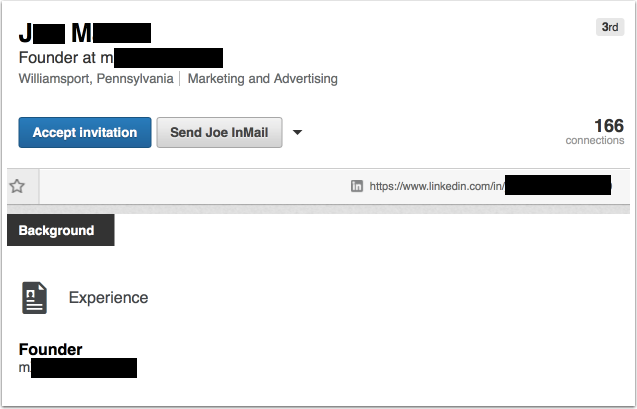Scams
Malicious email terms defined.
Legitimate mailers need to distinguish themselves from spammers. One important piece of that is knowing what spammers do. SendGrid has put together some information on common scams and techniques spammers use to get email delivered.
Some of these terms, like doxxing and swatting, are not specifically email related. However, they are used against people who are fighting abuse on the Internet. People who are actively investigating darker portions of the internet face real danger. Brian Krebs has made some of the harassment he’s received public. I know other people in the space have been harassed but don’t make it so public.
I think it’s valuable for marketers to understand the malicious and criminal end of mail. It makes some filtering decisions less random when you know the types of bad traffic that the filters are trying to stop. The SendGrid document is a fantastic first stop to learn about them.
Facebook scams move to LinkedIn
There’s a fairly common Facebook scam where someone clones an account, then sends out friend requests to friends of that person. This actually happened to a friend over the holiday break. The only problem was that most of the folks who got friend requests were actually security people. Security people who thought it was very, very funny to play along with said scammer.
The scam account didn’t last long, partly because FB security is pretty good and partly because a few of the folks the scammer invited were FB employees. I’m sure, though, that for a brief moment the scammer thought he’d found the motherlode of scam victims.
Today I got a similar scam on LinkedIn. A very bare account with little in the way of information about who this was.
I don’t like connecting with these kinds of profile. But, the name does sound vaguely familiar. So I do a little Googling. And I find another LinkedIn profile for the same person, but this profile has a lot more info: A picture, a statement, 500+ connections, all the things one expects from a real person on LinkedIn.
So yes, Facebook scams have rolled over to LinkedIn. Be careful out there, folks. Pay attention to who you’re friending on all social media, not just FB or LinkedIn. Discretion is the better part of valor and all.